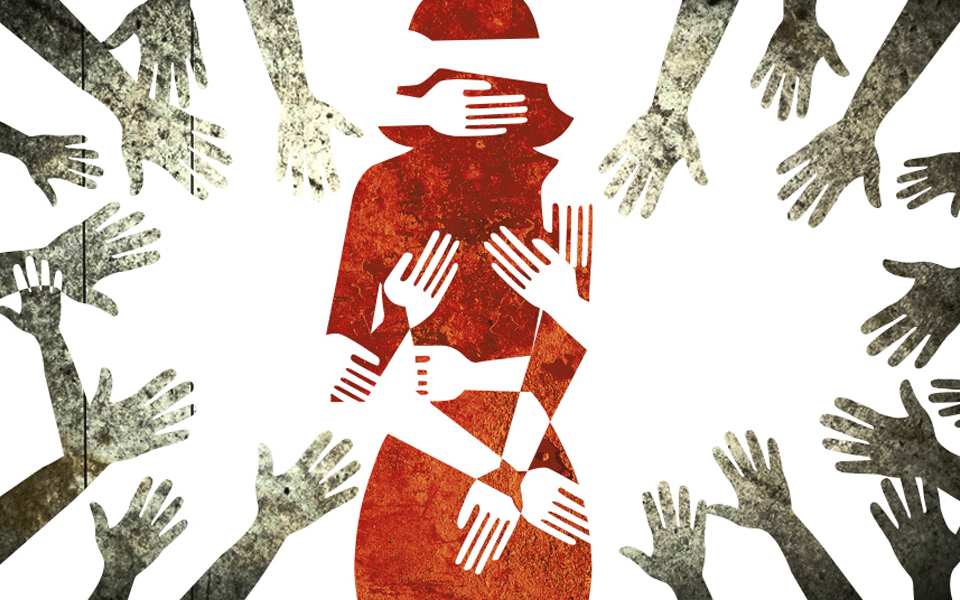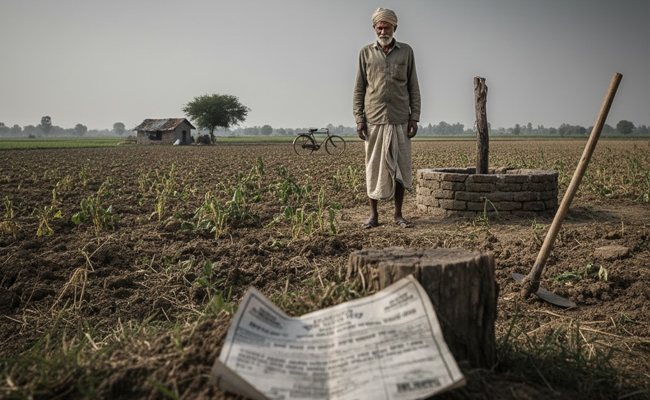Nagaon (Assam), August 29: A woman in her twenties was allegedly abducted and gang-raped in Assam's Nagaon district, following which she was dumped on a national highway, police said on Wednesday.
In her complaint, the woman said she was riding pillion on a motorcycle that was driven by her male friend on Tuesday evening. He had picked her up from a roadside eatery in Lanka area, where she works, and they were travelling to Golaghat district, Nagaon Superintendent of Police (SP) Sankarbrat Roy told reporters. Nagaon is around 120 km from Guwahati.
She alleged that they were waylaid and forcibly taken away by four men in their vehicle. The woman was then driven away and her four abductors raped her at Amoni near Kalong river. They abandoned her near a petrol pump on NH 37 after she passed out, Roy said.
An oil-tanker driver spotted her and informed the police, who rushed to the spot and admitted her to the Nagaon civil hospital. She is undergoing treatment for trauma and severe injuries in her private parts. Her medical examination has also been conducted, the SP said.
The officer said the rape did not take place inside the vehicle, but outside a thinly-populated area and there might have been five-six culprits. An FIR has been registered under Sections 341 (wrongful restraint), 376D (gang rape), 324 (injuring with dangerous weapons).
The district additional superintendent of police, Bipul Das, has been entrusted to investigate the incident, he said, adding that an operation had been launched to nab the culprits.
The two-wheeler in which she was travelling has been recovered. A search in on to find her friend, who cannot be traced traced, the officer said.
Courtesy: www.news18.com
Let the Truth be known. If you read VB and like VB, please be a VB Supporter and Help us deliver the Truth to one and all.
Mangaluru: Intensifying action against drug peddling, Mangaluru City police arrested 25 people and registered 12 cases under the Narcotic Drugs and Psychotropic Substances (NDPS) Act between November 30 and December 13. During the operation, police seized 685.6 grams of MDMA and 1.5 kg of Ganja, The Times of India reported.
City police commissioner Sudheer Kumar Reddy reportedly said, the QR code based anonymous reporting system, introduced to enable citizens and students to discreetly share information on drug-related activities, has received an encouraging response. Several recent arrests were made based on inputs received through this system, helping police tighten the noose around drug peddlers.
ALSO READ: "Women are only for sleeping with husbands”: CPI(M) leader’s victory speech sparks outrage
According to the report, so far this year, up to December 14, police have registered 107 drug peddling cases and arrested 219 accused. In addition, 562 cases were booked for drug consumption, leading to the arrest of 671 people.
During raids conducted this year, police allegedly seized large quantities of narcotics, including ganja worth Rs 88.7 lakh, MDMA valued at Rs 1.2 crore, and MDMA pills worth Rs 87,000. Other raids include charas worth Rs 1.7 lakh, hydro-weed ganja worth Rs 94.7 lakh, methamphetamine worth Rs 50,000, bhang chocolates worth Rs 6,800, cocaine worth Rs 1.9 lakh, and opium worth Rs 9,000.
In 2024, police arrested 160 peddlers in 88 cases, in addition to booking 1,026 cases for consumption and arresting 1,244 persons. In 2023, the police arrested 199 peddlers in 94 cases and booked 619 cases for consumption and arrested 749 persons.
"We ensure that peddlers are caught red-handed so that they cannot later dispute the case or claim innocence," TOI quoted commissioner Reddy as saying.
To curb drug use among students, police also introduced random drug testing in colleges. Around 100 educational institutions were covered in the first phase, where nearly 6,000 students were screened. As per the report, about 20 students tested positive and were counselled. They will undergo follow-up tests in the next phase.
Reiterating a zero-tolerance policy, the commissioner reportedly said random testing would continue and colleges have also been directed to conduct drug tests at the time of admission to deter substance abuse at an early stage.





